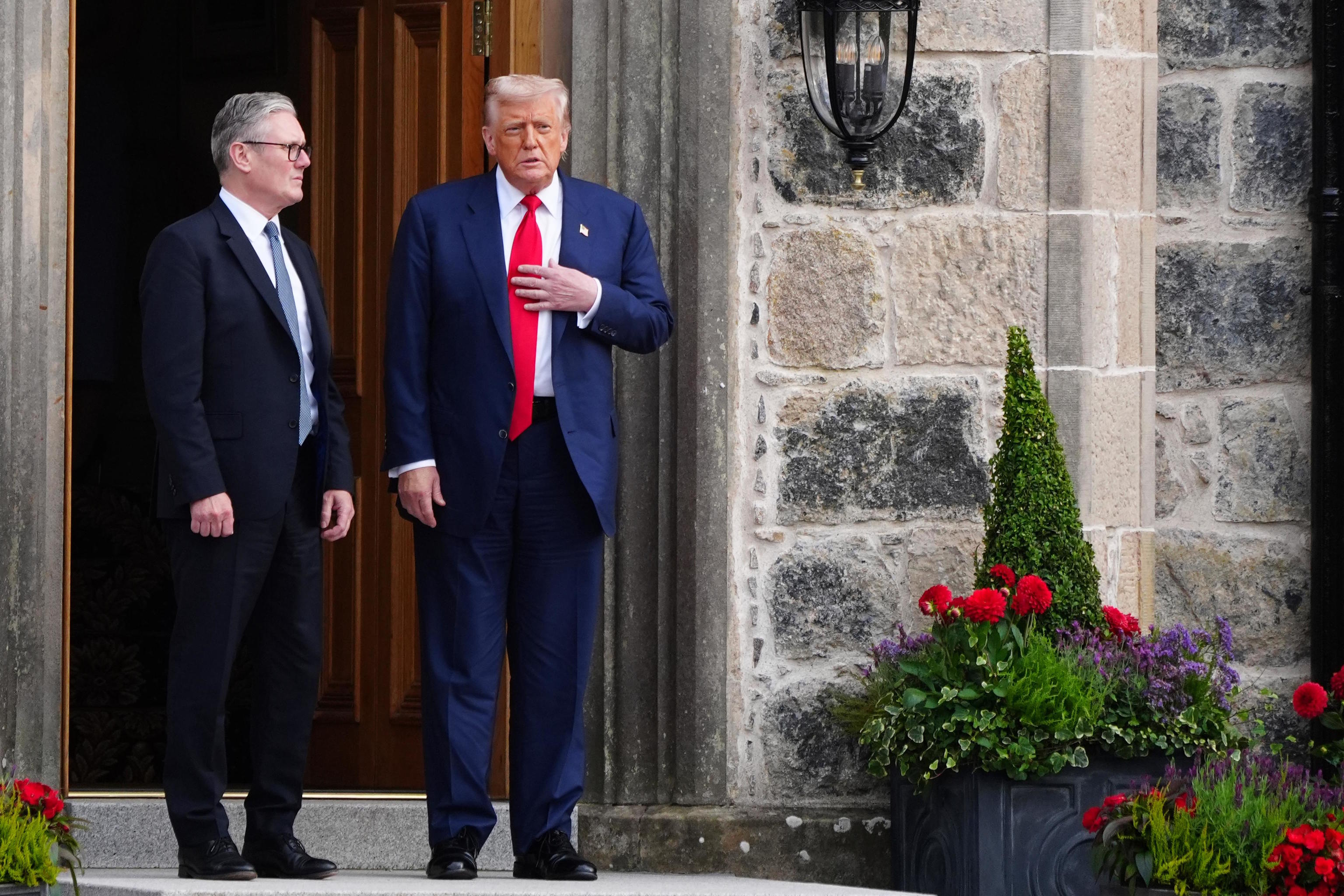The relationship between Donald Trump and Vladimir Putin continues to deteriorate. This is what the U.S. President stated in a meeting with British Prime Minister Keir Starmer in Scotland. "I am disappointed with President Putin, very disappointed with him. So we will have to see him, and I will reduce the 50 days I gave him to a lower number," Trump declared when welcoming Starmer at one of his golf courses in Scotland. "I think I already know what will happen," the American said. That is, Russia will not have signed any truce and, on the contrary, will have intensified its attack on Ukraine. In that case, the U.S. President plans to announce today or tomorrow that he is reducing the deadline "to 10 or 12 days".
Trump had announced on July 14 that if Russia did not show willingness to reach a peace agreement with Ukraine, he would impose economic sanctions on Moscow in early September. On that occasion, Trump also mentioned the sale of weapons to European allies, who could in turn send them to Ukraine or use them to replenish their arsenals if they are already providing arms to Kiev. This latter option is already being put into practice with Patriot anti-aircraft missiles.
In his statements that day, made alongside NATO Secretary-General Mark Rutte, Trump did not go into details about the sanctions. Bilateral trade between Moscow and Washington is minimal, and Trump has also excluded Russia from his tariff increases, as well as other dictatorships like Cuba, North Korea, or Belarus, despite which Trump has repeatedly threatened to impose tariffs on them.
The White House has also floated the idea of "secondary sanctions," that is, against countries that trade with Russia, especially by buying oil or selling technology that Moscow uses in the war. These sanctions could include banning the use of the U.S. financial system, freezing the assets of those entities in the country, or revoking their licenses to operate in the country. Another option is to impose tariffs of up to 100% on countries that trade with Russia. The latter option seems more remote, given that one of the largest buyers of Russian oil is an ally of the United States: India.
In any case, Trump's threats to Russia should be treated with caution. A week after threatening Russia with sanctions, the U.S. President advocated for Russia's reentry into the G-7 at the Alberta summit and refused to impose further sanctions on Moscow, arguing that they "cost a lot of money." Trump had promised upon entering the White House that he would achieve peace between Russia and Ukraine on his first day in office. Later, he has said on at least two occasions that "we will wait two weeks" to see if Putin comes to his senses, but has done nothing when Russia has continued the war.
In his appearance, Trump said that he had "spoken with Putin four or five times" and reached an agreement, after which the Russian dictator had bombed more Ukrainian cities. His account seems to coincide with rumors that it was the President's wife, Melania Trump, who convinced him that Putin was ignoring his own promises and continuing to attack Ukrainian cities.
During the meeting, Starmer tried to pressure Trump to force Israel to adopt a ceasefire in Gaza that would allow the entry of humanitarian aid into the Palestinian territory, which is beginning to suffer from a famine due to the blockade by the Jewish state. The British Prime Minister stated that his country is working "with Jordan to reach an agreement that allows for food to be dropped by parachute." British Foreign Minister David Lammy is attending a United Nations conference in New York today and tomorrow on the peace process in the Middle East. Starmer's government is under strong pressure from its own party, the Labour Party, to recognize Palestine. Trump made a 180-degree turn in this area by showing willingness for the United States to jointly open humanitarian aid and food distribution centers in Gaza with European countries.
Trump also attacked, as is customary for him, immigration in Europe, which, he said, "is a very different place now than it was five or ten years ago," referring to the arrival of third-country citizens. Trump referred to immigrants as "killers, drug traffickers, and people that other countries do not want," and recommended to Starmer to follow his anti-immigration and tax reduction policies to be reelected.
Trump's trip to Scotland has raised some controversy in the United States, as it will cost taxpayers around 10 million dollars (8.6 million euros) but is primarily aimed at promoting the private clubs that the U.S. President owns in that country of the United Kingdom.
